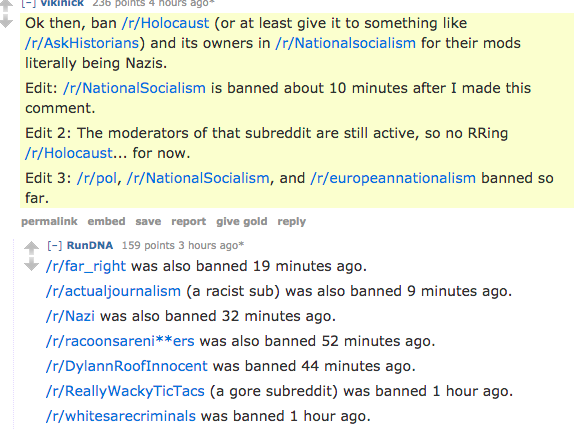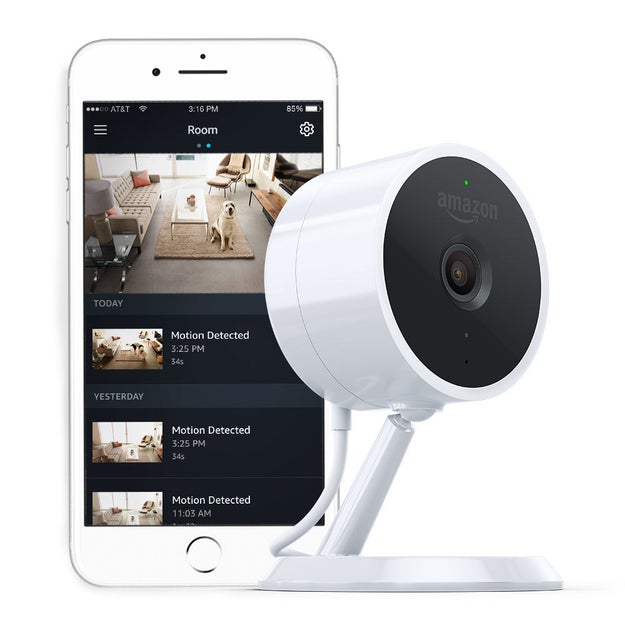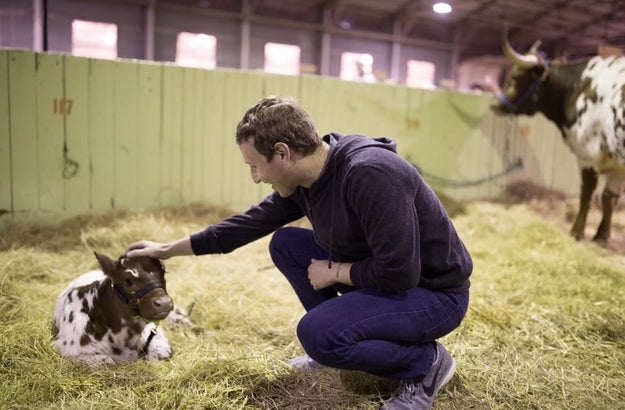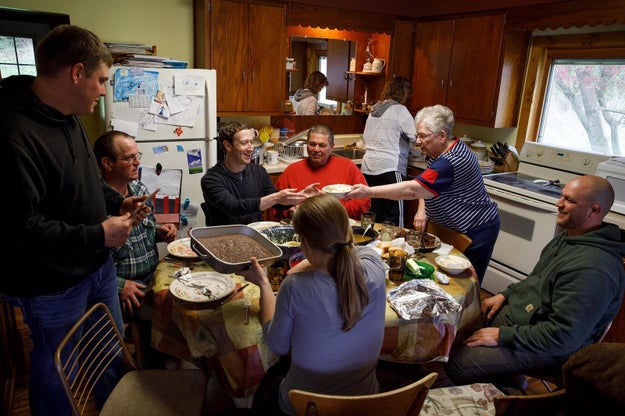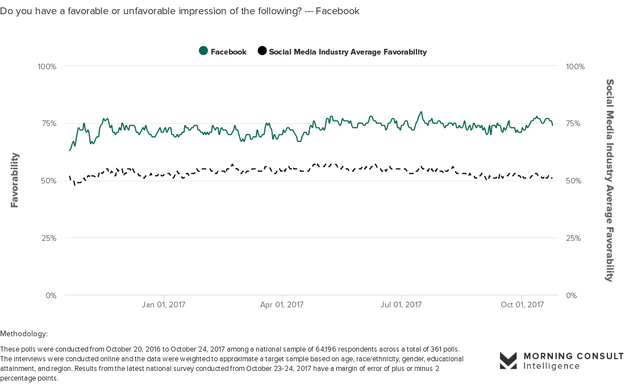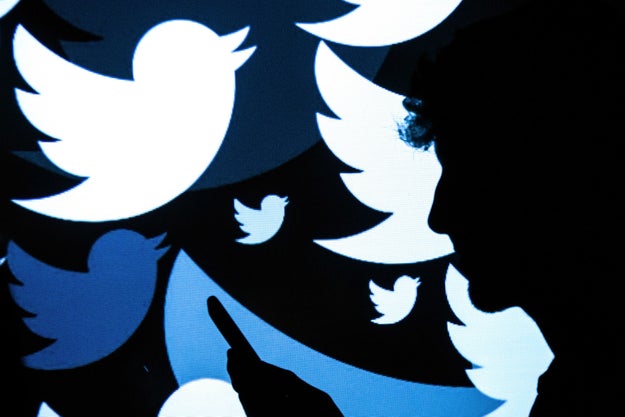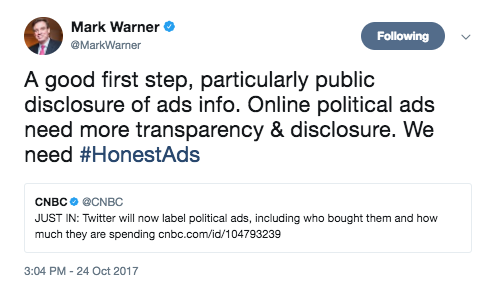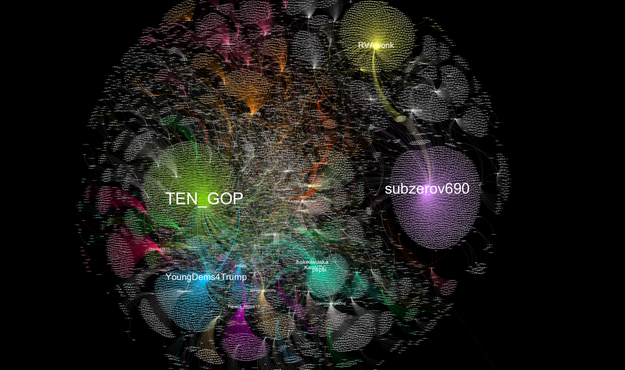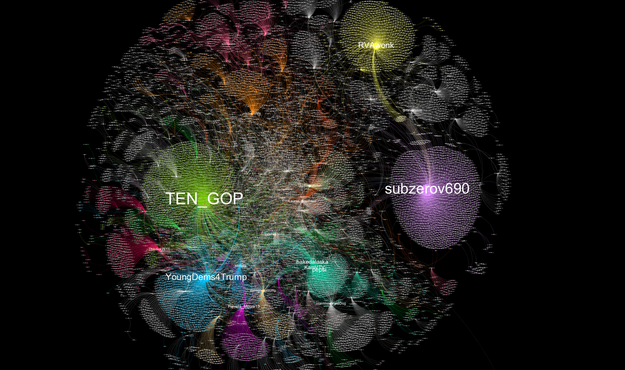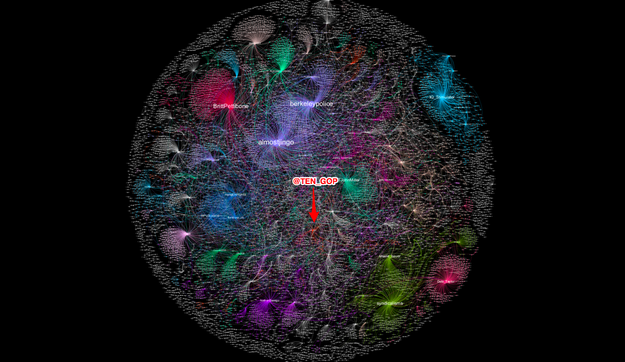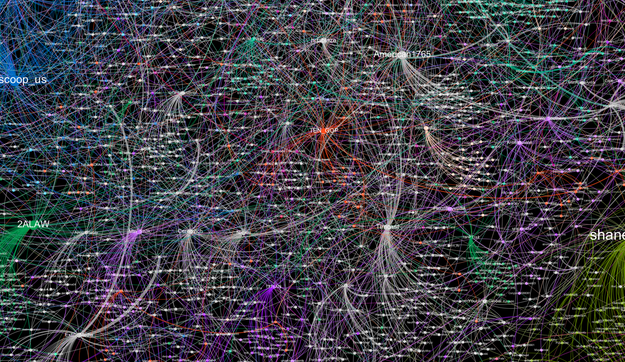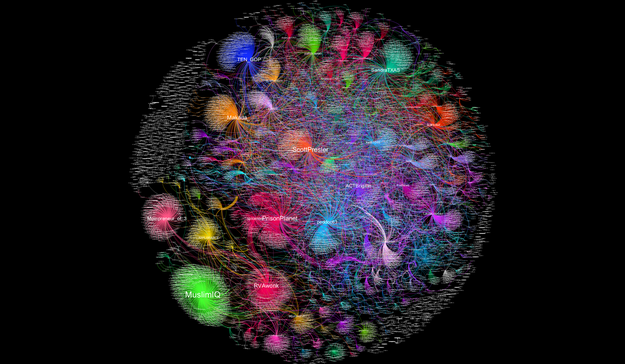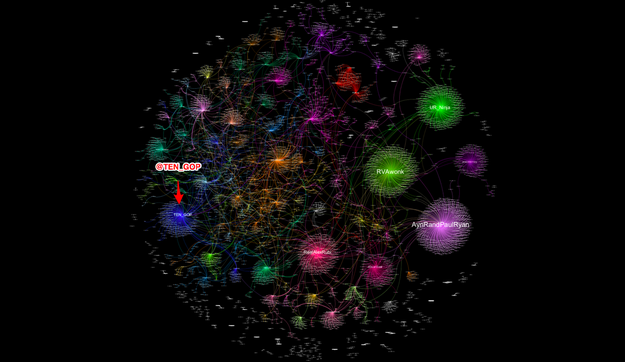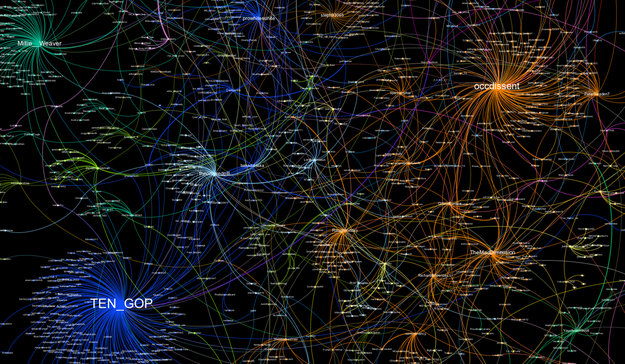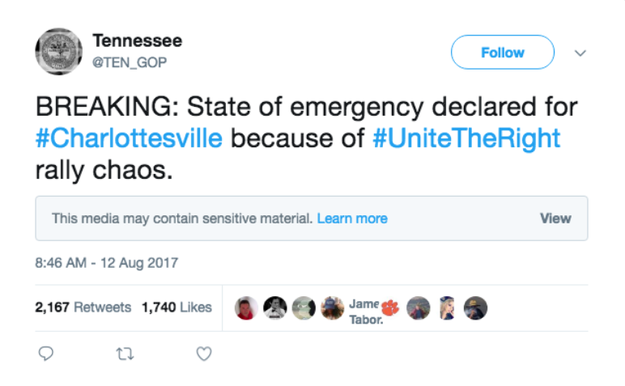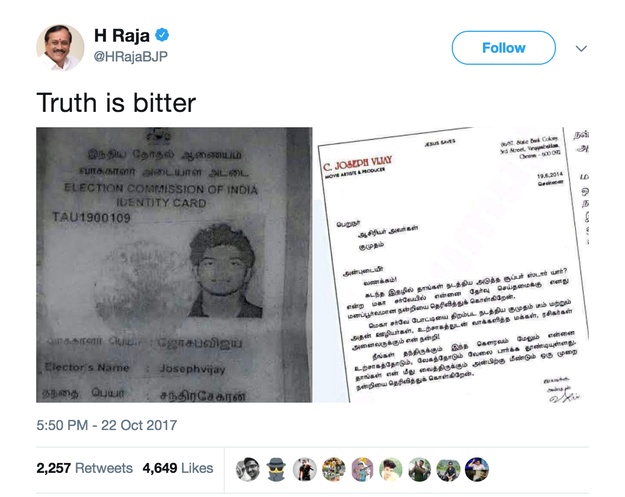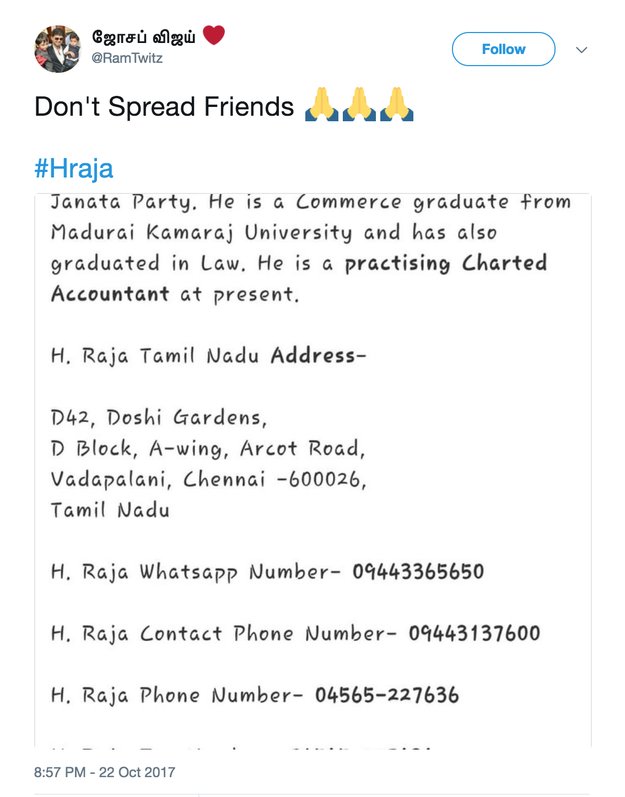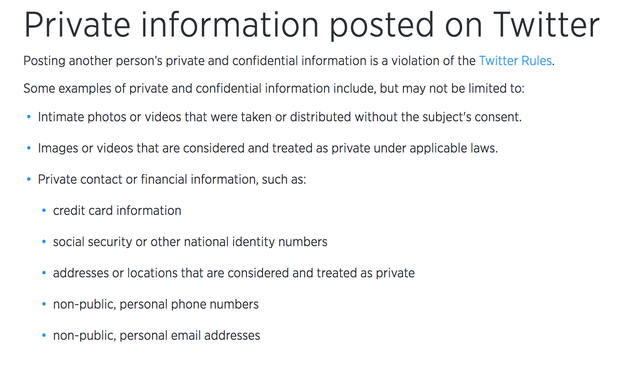Twitter Is Banning Ads From Russian Media Outlets RT And Sputnik Because Of Election Meddling
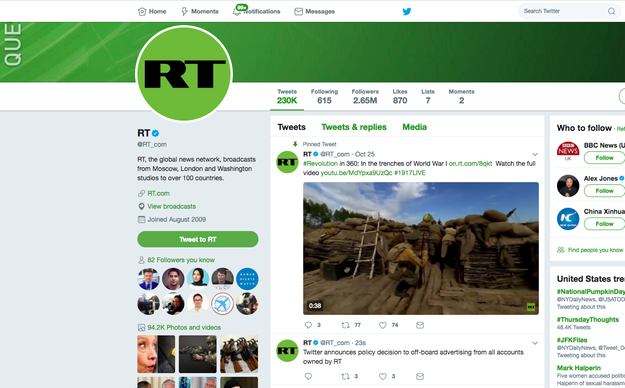
All advertising from RT and Sputnik will be banned on Twitter, the company announced Thursday, due to the US intelligence assessment that the state-owned Russian media outlets attempted to interfere in the 2016 presidential election.
The decision to “off-board” all advertising from RT and Sputnik accounts is effective immediately, Twitter announced in a blog post.
“We did not come to this decision lightly, and are taking this step now as part of our ongoing commitment to help protect the integrity of the user experience on Twitter,” the company said.
A representative for Russia's foreign ministry called the decision “an aggressive step.”
“Any infringement on activities of [Russian] media are evidence of US violation of rules that guarantee freedom of speech,” the ministry later tweeted.
Twitter pointed to a January report from the Office of the Director of National Intelligence which assessed “with high confidence” that President Vladimir Putin personally ordered a campaign to “undermine public faith in the US democratic process, denigrate Secretary [Hillary] Clinton, and harm her electability and potential presidency.”
The same report said the English-language RT and Sputnik were part of a “propaganda machine” that attempted to the influence campaign “by serving as a platform for Kremlin messaging to Russian and international audiences.”
“RT and Sputnik…consistently cast President-elect Trump as the target of unfair coverage from traditional US media outlets that they claimed were subservient to a corrupt political establishment,” the report read.
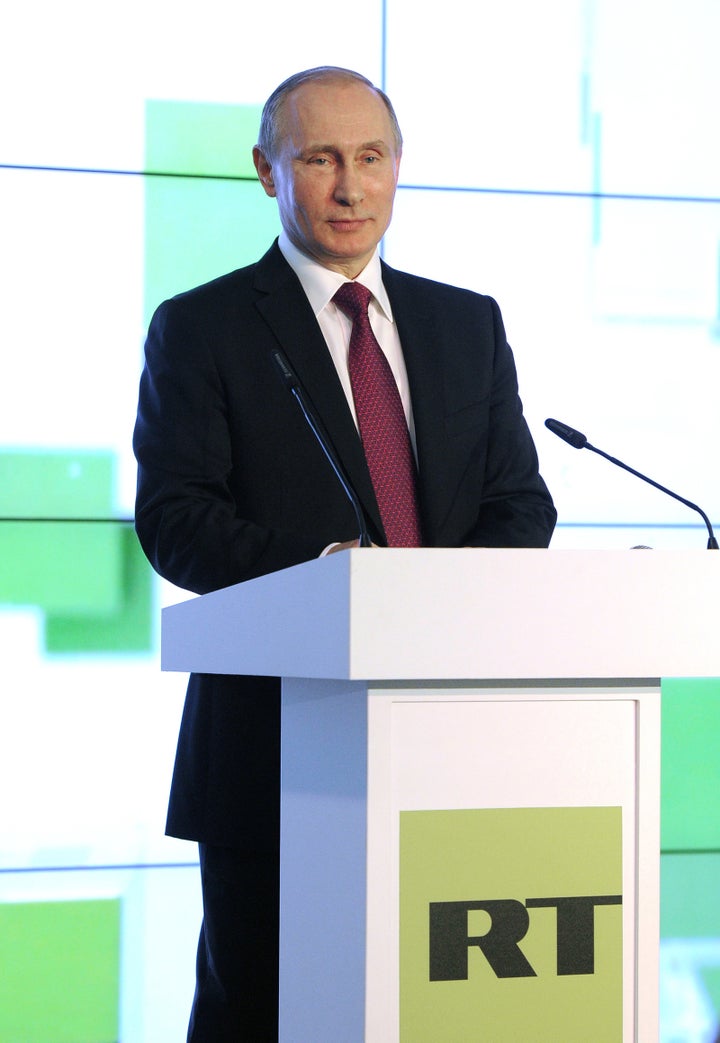
Putin speaking at an RT event in 2015.
Mikhail Klimentyev / AP
Citing the DNI report, as well as an internal investigation, the social media company said the Russian interference “is not something we want on Twitter.”
RT and Sputnik will still be permitted to remain Twitter users, but Thursday's decision means they won't be able to target posts or content at specific users.
Asked why they did not suspend the two outlets' accounts, a Twitter spokesperson told BuzzFeed News the company has “a number of higher standards for advertisers than we do for organic content.”
Twitter said they would spend the $1.9 million in advertising revenue earned from RT and spend it on “external research into the use of Twitter in civic engagement and elections, including use of malicious automation and misinformation, with an initial focus on elections and automation.”
Established in 2005, RT (formerly known as Russia Today) is a 24-hour news network which is, according to the company, now available in more than 100 countries. ” RT covers stories overlooked by the mainstream media, provides alternative perspectives on current affairs, and acquaints international audiences with a Russian viewpoint on major global events,” the company says. Sputnik has an online and radio focus.
The DNI described RT as “the Kremlin’s principal international propaganda outlet” and said the company was routinely in contact with WikiLeaks, which played its own major role in the US election by releasing Clinton campaign emails.
“Russia used trolls as well as RT as part of its influence efforts to denigrate Secretary Clinton,” the DNI said. “This effort amplified stories on scandals about Secretary Clinton and the role of WikiLeaks in the election campaign.”
RT editor-in-chief Margarita Simonyan used Twitter on Thursday to to accused CEO Jack Dorsey of urging the company to spend money on the election.
Asked for comment, an RT spokesperson pointed BuzzFeed News to an article alleging that Twitter pushed RT “for a large ad buy” for the election.
“RT has never been involved in any illegal activity online, and that it never pursued an agenda of influencing the US election through any platforms, including Twitter,” the company said.
Russian lawmaker Andrei Svintsov, deputy chairman of a state IT committee, told RT he suspected Twitter would try to further restrict Russians.
“This is the first step, and they will further restrict their accounts, and block them in every way,” he said. “This is the continuation of the politics that American business, under pressure from the authorities, are exercising against the Russian media.”
Ads on Twitter show up on people’s feeds as promoted tweets that may or may not also be tweeted from the promoted account. It is unclear which which of the @RT_com account’s tweets may have been boosted. But a look at @RT_com’s account can help understand what kind of RT content may have been popular during the election.
A BuzzFeed analysis of @RT_com tweets from April 1, 2016 to Nov. 8, 2016 shows that seven of @RT_com’s top 20 most-favorited tweets were about Clinton, linking her to organizations that also fund ISIS as well as to the Saudi Arabian and Qatari governments. The majority of these tweets were published just days before election day and featured information from an interview with Julian Assange.
Twitter has been under intense political scrutiny since the revelation last month that it discovered around 200 accounts linked to Russian-groups that purchased roughly $100,000 of ads on Facebook to sway Americans and create divisions during the election.
The company announced on Tuesday it was ending its practice of “dark ads” or promoted posts that can only be seen by the people advertisers pay to target.
Jane Lytvynenko contributed to this report.
Quelle: <a href="Twitter Is Banning Ads From Russian Media Outlets RT And Sputnik Because Of Election Meddling“>BuzzFeed








